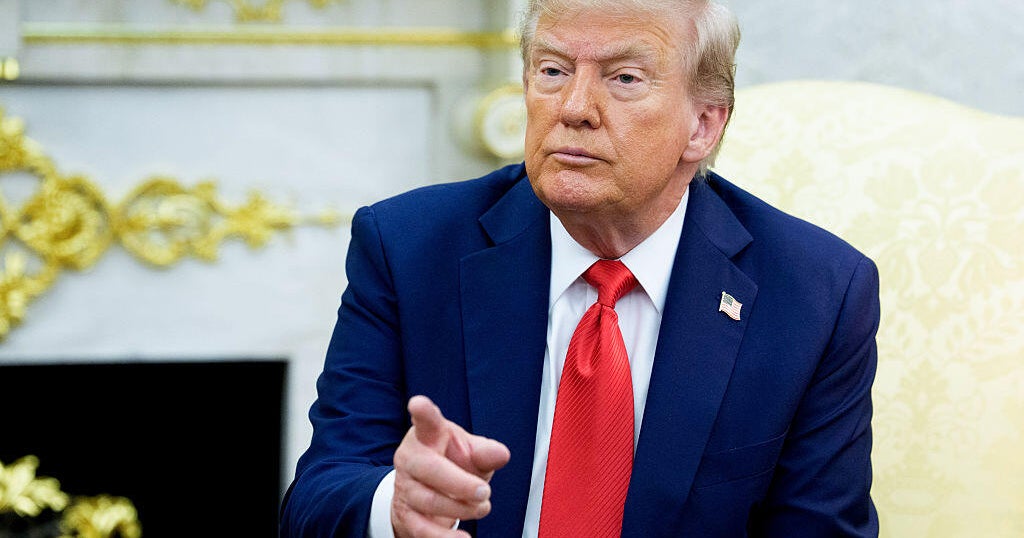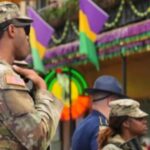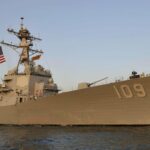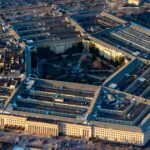In a recent strategic move, the U.S. military carried out a lethal strike against a vessel in the Caribbean Sea, which was reportedly involved in drug trafficking from Venezuela. This action is seen as a continuation of President Trump’s broader campaign against international drug trafficking and his specific focus on the Tren de Aragua gang, a notorious criminal group originating from Venezuela.
The Tren de Aragua, with its roots traced back to one of Venezuela’s most chaotic prisons over a decade ago, has dramatically evolved its criminal undertakings. Originally notorious within the confines of Venezuela, the gang has grown significantly in scope and influence, coinciding with the widespread migration of Venezuelans escaping their country’s economic breakdown. Expanding across Latin America and into the United States, the gang has been implicated in various criminal activities including drug trafficking, human smuggling, kidnapping, and extortion, among others. However, despite their notorious reputation, their direct involvement in large-scale international drug trafficking remains under scrutiny.
The Trump administration, both past and present, has underscored the Tren de Aragua’s influence as a substantial contributing factor to the violence and drug-related issues within U.S. cities. President Trump, leveraging his executive power, labeled the gang as a foreign terrorist organization early in his presidential tenure. His administration’s stance intensified following their claims, albeit contradicted by some U.S. intelligence reports, that the gang operates under the directive of top Venezuelan government officials, including connections with Nicolás Maduro’s regime.
Recently, Trump reemphasized the gang’s purported threat in his 2024 presidential campaign speeches, describing certain U.S. regions as overwhelmingly influenced by the gang’s operations. However, these statements have been met with mixed reactions from local law enforcement in the U.S., who suggest that the extent of Tren de Aragua’s influence may be overstated. For instance, the Police Chief of Aurora, Colorado, indicated that the city faced organized criminal activities linked to the gang, but the prevalence was localized and involved a minimal number of verified gang members.
Amid these political and security tensions, the U.S. government executes a stringent policy against drug trafficking and related crimes in the Caribbean and surrounding regions. Secretary of Defense Pete Hegseth has made clear that the U.S. military presence in the Caribbean is strategic, aimed at deterring and incapacitating any drug trafficking operations, particularly those linked to designated narco-terrorism. The recent military strike, which resulted in the death of eleven individuals believed to be associated with the Tren de Aragua, signifies a pivotal moment in U.S. military engagement. The U.S. government, while criticized for its lack of transparency surrounding the details of these operations, maintains that such measures are essential to disrupt the operations of drug traffickers and criminals who pose a direct threat to national security.
Critics of this approach, however, raise concerns about the potential for overreach and the ethical implications of deploying military force against suspected criminals without comprehensive evidence of their affiliations or intentions. Human rights advocates and international observers question the criteria used by the U.S. to classify individuals as threats and the legality of executing such decisive military actions without a clearer process of verification.
In response to the strike, the Venezuelan government, while generally downplaying the presence of Tren de Aragua within its borders, questioned the legitimacy of the evidence provided by the U.S. A video released by the U.S. showing the strike was dismissed by Venezuelan officials as a possible fabrication, a claim swiftly rejected by U.S. authorities.
As this complex scenario unfolds, the U.S. continues to showcase robust military readiness in the region, signaling that it will not tolerate any activities that could funnel drugs into the country or compromise its security. Meanwhile, the international community remains watchful, assessing the implications of America’s aggressive stance on drug trafficking and its potential reverberations throughout the region.
In conclusion, the recent military strike by the U.S. against a vessel suspected of engaging in drug trafficking activities marks a significant escalation in the fight against international drug trafficking networks. The operation underscores the complexity of responding to transnational crimes that involve numerous state and non-state actors, each with differing agendas and capabilities. As the global community continues to grapple with the best approaches to managing and mitigating the threats posed by organized crime and drug trafficking, the U.S. strategy in the Caribbean highlights the ongoing challenges and contentious debates surrounding national security and international law enforcement.









